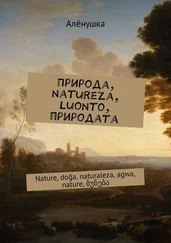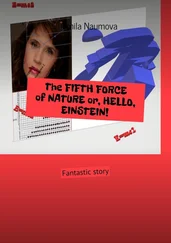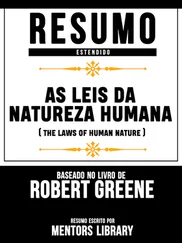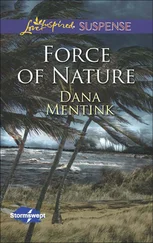C. Box - Force of Nature
Здесь есть возможность читать онлайн «C. Box - Force of Nature» весь текст электронной книги совершенно бесплатно (целиком полную версию без сокращений). В некоторых случаях можно слушать аудио, скачать через торрент в формате fb2 и присутствует краткое содержание. Жанр: Триллер, на английском языке. Описание произведения, (предисловие) а так же отзывы посетителей доступны на портале библиотеки ЛибКат.
- Название:Force of Nature
- Автор:
- Жанр:
- Год:неизвестен
- ISBN:нет данных
- Рейтинг книги:5 / 5. Голосов: 1
-
Избранное:Добавить в избранное
- Отзывы:
-
Ваша оценка:
- 100
- 1
- 2
- 3
- 4
- 5
Force of Nature: краткое содержание, описание и аннотация
Предлагаем к чтению аннотацию, описание, краткое содержание или предисловие (зависит от того, что написал сам автор книги «Force of Nature»). Если вы не нашли необходимую информацию о книге — напишите в комментариях, мы постараемся отыскать её.
Force of Nature — читать онлайн бесплатно полную книгу (весь текст) целиком
Ниже представлен текст книги, разбитый по страницам. Система сохранения места последней прочитанной страницы, позволяет с удобством читать онлайн бесплатно книгу «Force of Nature», без необходимости каждый раз заново искать на чём Вы остановились. Поставьте закладку, и сможете в любой момент перейти на страницу, на которой закончили чтение.
Интервал:
Закладка:
When Nate finally asked what the fate of the birds would be, Nemecek was vague, except to say their presence had a national security purpose, and that Nate would soon learn what it was.
When Nate asked why no other operators had been involved in the mission thus far, Nemecek was contemptuous. He told Nate the answer to his question should have been obvious: there were very few competent master falconers in the entire country, much less Mark V. Nemecek and Nate were the only men capable of capturing, nurturing, feeding, and training the young peregrine falcons. So of course no others were brought in.
Nate didn’t know whether to be flattered or suspicious.
“One year later, in February,” Nate said, “I found out. When the falcons were a year old and in prime flying condition, Nemecek and I took the seven birds with us to Kandahar in Afghanistan. We were met at the airport by a driver in a brand-new GMC Suburban and taken a hundred miles south in the desert. The driver seemed to know Nemecek by sight, and never asked for ID. There was barely a road, and the guy driving us didn’t speak a word of English.”
“By then,” Haley asked, “did you know what your operation was about?”
“Barely,” Nate said. “All Nemecek told me was we were to meet some important people who would buy the falcons from us for a minimum of two hundred and fifty thousand dollars each.”
“Good Lord.”
“That’s what I thought, but I didn’t say it. You didn’t say much around Nemecek, or question his planning. You simply did what you were told. But when I saw where the driver was taking us, I was blown away.”
Seven large jetliners and two cargo planes were parked on the desert floor on a huge flat expanse of hard rubble. Arabic writing marked the tails of the aircraft. As they passed through the makeshift airport, Nate could tell from the lettering and the green, red, white, and black flags painted on the sides that they originated in the United Arab Emirates. One had a slogan painted in English on the side that read visit dubai-the jewel of the desert. They continued on the poor road but the driver never slowed down. Uniformed men with automatic weapons waved them through two checkpoints and the driver didn’t even acknowledge them.
This operation continued to be unlike any other Nate had participated in. There were only the two of them-his superior and him. If others had been embedded, that fact was kept secret. They were traveling under their own names, with their personal passports. And they had no weapons. Only the birds in their special darkened crates, their personal luggage, and a single satellite phone Nemecek kept turned off in his carry-on bag.
The predominant color in all directions was beige, Nate noted. There was little green vegetation except in shadowed pockets on the sides of rock formations, and everything looked sun-bleached and windswept and bone dry. As they drove on, the terrain rose and got rougher and wind-sculpted rock escarpments stood like monuments. Nate could see the distant outline of mountains, and he was reminded of the bleak badlands of eastern Montana or western Wyoming. That impression went away, however, when the driver topped a small hill and below him he could see an elaborate desert camp.
As they approached, he was astonished by the size and number of Bedouin-style tents. Parked next to the tents were dozens of late-model American SUVs, Land Rovers, and Mercedes luxury crossovers. Uniformed men with submachine guns strapped across their chests wandered through the tents. But what struck him most were the dozens of tall wooden poles mounted in the desert next to the tents. On each of the poles was a small platform. And perched on top of each platform was a hooded falcon.
“It was a bustard hunting camp,” Nate explained. “The emirs flew their falcons and handlers from the UAE to Afghanistan for a hunting trip. The cargo planes brought the tents, soldiers, and vehicles. I found out later that when they struck the camp and left, the emirs left the SUVs and tents for the Taliban as payment. And they did this kind of thing two or three times a year.”
“Let me get this straight,” Haley said. “These rich Arabs flew private jets to Afghanistan just to hunt forty-pound birds? That must have cost them millions to stage a thing like that.”
“Absolutely,” Nate said. “And it’s why Nemecek schooled me. So I’d have an idea what we were getting into.”
“But why were you there?”
“I was there to be the bird handler,” Nate said. “I assumed when we saw the camp that our mission was to gift the peregrines to some king. As tribute, since the UAE were allies and things are done different over there. I could imagine some genius in the State Department finding out an influential emir was crazy for falcons, and having the brilliant idea of delivering rare North American peregrine falcons to him as a gift. Remember, this was a year and a half before 9/11 happened. This was after the Khobar Towers bombing but before the attack on the USS Cole in Yemen. Al-Qaeda was at war with us, but very few of us knew it. All I knew at the time was that in the Arab world we had both friends and enemies, but that nothing was clean-cut or predictable. Some of our friends bred future enemies, paid protection money to terrorists, and killed their own people. But it wasn’t my job to know which from which, or why we were over there delivering peregrine falcons to emirs. My job was to take care of the birds and show them when Nemecek gave the word.”
They were housed in an amazingly well-appointed tent on the edge of the camp. Servants appeared to bring them food and drink and to help secure the bird crates.
While they waited, Nemecek left the tent with the satellite phone and didn’t return for a half an hour. Nate fed the birds-they were hungry and disoriented and now of age to fly and hunt once they were released-and wondered who his boss was checking in with. But he didn’t ask, and Nemecek didn’t volunteer any information when he returned.
“We were invited to the largest tent that night for dinner,” Nate said. “We ate roasted goat and lobsters flown in from Maine. Our host was the prime minister of Dubai, named Mohammed bin Rashid Al Khartoum, and he was fat and jolly and a wonderful host. He spoke perfect UK English because he’d gone to school at the London School of Economics and later MIT. But his interest was in the peregrines, and Nemecek deferred to me on all the questions. It didn’t take long to figure out Nemecek knew this guy pretty well, and he was our contact. There were about twenty-five other guests that night. No women. After dinner they told hunting stories and laughed about things that had gone on during the day, how one of the emir’s falcons missed a bustard and smashed into the ground, that sort of thing. I could understand bits and pieces of the conversation, but it wasn’t unlike any hunting camp I’ve ever been to. They broke out the single-malt Scotch, although technically as devout Muslims they weren’t supposed to drink, and it went on late into the night. I know now it was a Who’s Who of UAE royals and underlings. Plus, there were some visiting guests in addition to us. All I remember about the guests was that several of the emirs really groveled around them, and I assumed they were locals. I guessed they were emissaries from the Taliban government, but it was only a guess.”
Nate said, “One of them was tall and handsome and the other older and very intense. Both had long beards in the Taliban style-one black, one gray. The older man wore glasses and talked a lot. He kept looking at us in a way that gave me the impression he was suspicious of our being there. The tall one just smiled the whole time, as if he was enduring the stories in a good-hearted way. He seemed serenely calm. They were never introduced to us. The storytelling went on for hours, and I was bushed. It was obvious Nemecek wanted to stay, and I didn’t care. I needed to feed the birds. As I said good night, the two other visitors got up and made all kinds of apologies about leaving as well. From what I could understand, they had a camp of their own a few miles away and it would take them a while to get back.”
Читать дальшеИнтервал:
Закладка:
Похожие книги на «Force of Nature»
Представляем Вашему вниманию похожие книги на «Force of Nature» списком для выбора. Мы отобрали схожую по названию и смыслу литературу в надежде предоставить читателям больше вариантов отыскать новые, интересные, ещё непрочитанные произведения.
Обсуждение, отзывы о книге «Force of Nature» и просто собственные мнения читателей. Оставьте ваши комментарии, напишите, что Вы думаете о произведении, его смысле или главных героях. Укажите что конкретно понравилось, а что нет, и почему Вы так считаете.












